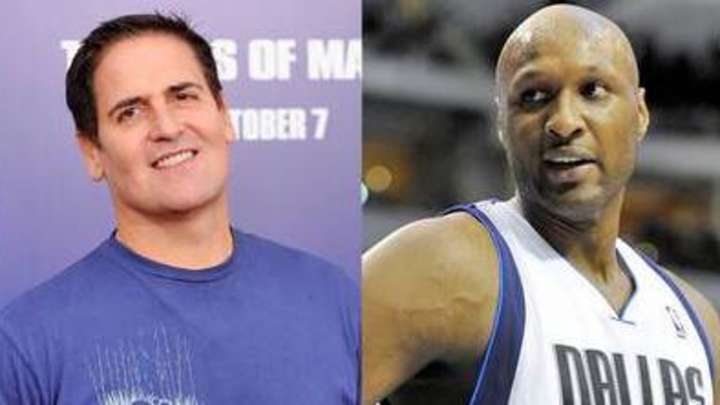Lamar Odom takes all the blame (except for putting all the blame on Cuban's Mavs)

DALLAS - I lived through The Lamar Odom Experience in Dallas, and began to recognize what a queer experience it was when during that 2011-12 Dallas Mavericks season I realized that I was arriving at the AAC for Mavs home games hours ahead of Odom's arrival - even though he lived across the street, a three-minute walk away, at the W Hotel.
Odom has since painted himself as a sympathetic - or, to be fair, maybe just a pathetic - figure, and now he is writing a book about his NBA odyssey.
I assume the autobiography in whole only touches on his brief time in Dallas and focuses more on, as the D Magazine intro to its excerpt calls it, "his messy life.'' Because the truth is, the Dallas Mavericks were, in my experience, a non-factor in that mess. Indeed, weirdly given the overall implication here, he writes at much. From the excerpt:
"I was already planning my escape. I simply did not want to be in Dallas. My mind was in such a funk, I knew I was never going to recover.''
Unfortunately, for Lamar, he doesn't stop there, in a place where he seems to understand where the blame should reside. He goes on to detail a series of confrontations with owner Mark Cuban. And Lamar writes the truth when he details the frustration the owner experienced over a well-paid player who wasn't trying to play.
"Hell, I had a hard time putting together a good quarter,'' Odom admits. "I didn’t hustle. I barely boxed out. I’d just hope the days and weeks would fly by.''
What's odd about Odom's excerpt is that he is feigning an inability to understand why his employer was bothered by offensive behavior that Lamar himself admits was offensive behavior.
It is convenient that someone wishing to profit off a book would spin yarns about the volatility of Cuban ... while leaving out how in the locker room, even the sainted Dirk Nowitzki finally had to tell off the loafing Lamar. (At halftime of a game in Memphis, as I recall, in a confrontation in which the peacenik Dirk was willing to get physical if needed, as I recall.)
And again, I was there every night. I saw it. I lived it. I even had a heartfelt conversation with Odom one day about the tragic death of his baby ... and about the unusual frequency with which he broached the subject in public. I mentioned to him, in one-on-one interview form, that many of us have experienced similar losses but that, to be frank, his frequent mention of the loss edged dangerously toward him using the tragedy as a shield .. as an excuse.
Lamar did not much like my analysis, just as I do not much like reading the D Magazine excerpt intro that mentions it again, all these years later.
It begins: Editor’s note: in his new autobiography, published by local outfit BenBella Books, Lamar Odom chronicles his messy life — the murder of his cousin and death of his 6-month-old son, the reality show with his wife, the cocaine — and, in 2011, unexpectedly getting traded to the Mavericks. This is an excerpt.
I recognize I am tiptoeing toward a highly sensitive area. But in my conversation with Odom almost a decade ago, I shared my personal pain. And then I wrote about it. I understand the sensitivity. I understand catharsis, too. But here we are, discussing a chapter in a book that is being sold in part by mentioning a baby's death and being sold in part by Lamar Odom admitting all the things he did wrong in Dallas ... but then blaming somebody else for why he did them.
It still seems like an excuse. It still seems like a shield.

Mike Fisher - as a newspaper beat writer and columnist and on radio and TV, where he is an Emmy winner - has covered the NBA and the Dallas Mavericks since 1990. He has for more than 20 years served as the overseer of DallasBasketball.com, the granddaddy of Mavs news websites.